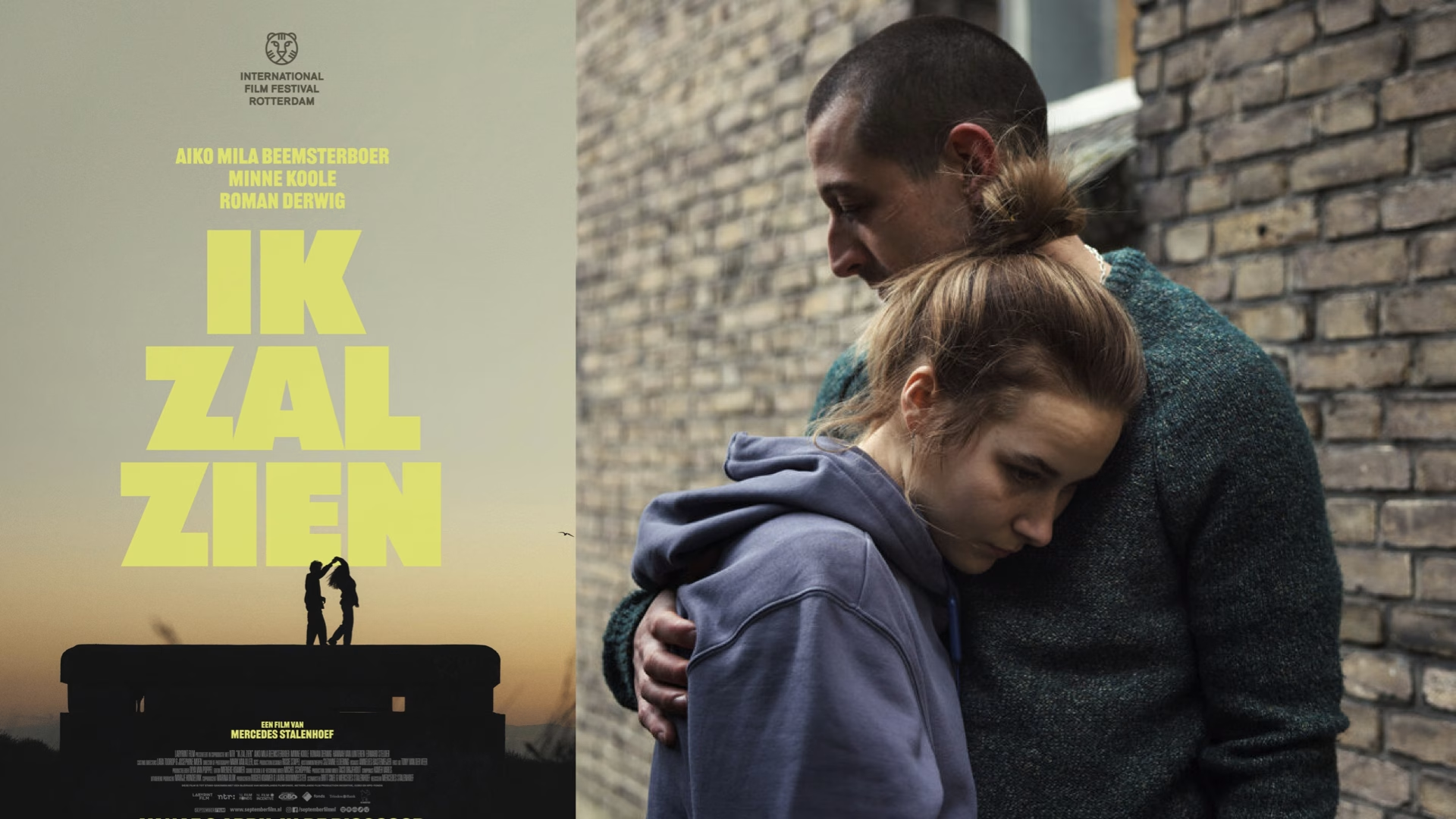Directed by Mercedes Stalenhoef, I Shall See (Ik zal zien) is a poetic and profound story of loss that takes viewers beyond the act of seeing. Written by Britt Snel, the film begins with a young woman, Lot (Aiko Beemsterboer), suddenly losing her vision. As colors, shapes, and faces vanish, her world becomes shrouded in a fog. Yet, this darkness is not merely absence for Lot; it becomes the starting point of a new perception and way of life.
With her documentary filmmaking roots, Stalenhoef captures the fragility of reality with extraordinary sensitivity. Lot’s world is no longer one Downward Spiral of light but of sounds, textures, memories, and dreams. The camera occasionally blurs or fades to black, where a breath, a step, or the sound of the wind replaces the emotion of a scene. The cinematography transforms this sensory shift into an experience, making darkness itself tangible for the audience.
Aiko Beemsterboer delivers a performance that speaks through silence. Lot’s fear, anger, and acceptance are conveyed not through monologues but as breaths. The subtle expressions on her face and the way her eyes, though unseeing, express emotion lend the film an almost documentary-like authenticity. Minne Koole (Micha) and Roman Derwig (Casper), as those around her, become quiet witnesses to Lot’s rebirth.
The film treats vision loss not as a tragedy but as a reconstruction of human perception. Stalenhoef’s camera portrays darkness not as an end but as a space for rebirth. This aligns I Shall See with contemporary sensory cinema like Sound of Metal or The Diving Bell and the Butterfly. Yet, Stalenhoef’s distinction lies in crafting the story through a feminine intuition, presenting loss not as diminishment but as a transformation into profound awareness.
The film’s soundscape is as striking as its visual style. Echoing footsteps, distant waves, the brush of a hand against a table edge—these details make Lot’s inner world visible. Silence itself functions like dialogue, allowing the audience to feel the presence of an unseen world through sound.
I Shall See premiered in the Netherlands on April 3, 2025, earning widespread praise from local critics. A co-production of Labyrint Film and NTR, the film is a strong contender for the Rotterdam Film Festival and Venice Days 2025, with nominations already secured for Best Actress and Best Cinematography.
Variety called it “a hypnotic journey that turns darkness into a language of emotions,” while The Hollywood Reporter praised Stalenhoef for creating “a fragile yet luminous story of resilience.” Cineuropa lauded it as “an experience that replaces sight with soul.” Dutch outlet De Volkskrant described it as “the most intimate portrait of a person reborn in darkness.”
With a 7.3 rating on IMDb, viewers have called the film “quiet yet powerful,” “meditative,” and “serene.” On Letterboxd, it’s frequently described as “a film that breathes,” with many noting that its slow pace is not a flaw but the essence of its storytelling.
I Shall See reminds us that seeing is more than a sense—it’s a matter of perception and acceptance rooted in the heart. With Stalenhoef’s poetic storytelling and Beemsterboer’s fragile performance, this film stands as one of modern European cinema’s most touching works.
Apartment No:26 Note: Quiet, sensory, and profound, I Shall See invites viewers not only to witness darkness but to see the life within it—not with eyes, but with the soul.














